My girlfriend and I were sitting in a small cafe in Porto when the blackout hit. The cafe’s power shut off in an instant: prep fridges, corner lamps, phone chargers down for the count. Large windows filled the room with sun, giving the illusion of a city with light. So at first, the collective reaction was delayed. But soon, an exhausted manager waved questions at smoking neighbors down the street. The whole block was down. The barista with curls and hoop earrings texted his family on the edge of town. They were also in the dark. Three Australian women stepped inside, begging for breakfast, only to face rejection from a dead kitchen. An Irish guy quickly got on Reddit, checking local threads, tapping theories for why. He shared that not only Portugal, but Spain was down for the count, soon after — slivers of France.
The manager poured small water glasses, apologized to tables for canceled orders, asked for cash payments if possible. Luckily, there was no princess customer, no entitled pandemonium. Everyone was understanding and grown, pragmatically checking phones for updates on the situation, even as batteries drained, and reception stalled without working cell towers. Still, even with a mutual understanding, I felt bad for the manager forced to navigate sweaty confusion, people off the street asking for bites she couldn’t sell.
Missing our final breakfast in Porto was immaterial. We could eat pancakes later. What felt urgent was our flight back to Amsterdam. We learned the Lisbon airport was shut down, flights canceled, power down. Porto’s airport, at the moment of searching, was inconclusive. Would generators power infrastructure so flights could still lift off? Should we risk getting stuck at the airport in the dark? We opted for the latter, pulling luggage over cobblestones to the last unclaimed car. Manuel wiped sweat off his forehead and ushered us in. He told us he lived near the airport, so he knows the route by heart, and we were his last ride. All the navigation systems were down and he didn’t want to deal with “asshole idiots” on the road as conditions worsened.
Traffic was already piling, and Manuel blasted TSF Rádio Notícias as the host gave live updates. My girlfriend understands a good deal of Portuguese, and translated bits in my ear. And as updates ramped up, Manuel translated the major headlines to the car. Our car was fully stopped on the freeway for nearly an hour, despite the ride only being 15 minutes, which only confirmed Manuel’s conviction to get home.
“I’ll be inside with my dog. This is very bad, do you understand? This whole country is going down…you might not fly. A lot of food will go bad, people don’t have water.”
We both emphatically nodded in agreement with him. This was very bad. It was alarming for power in multiple countries to be compromised for hours. There were already theories flying around about it being a potential cyberattack from Putin. Regardless of the cause, people just wanted an answer and a timeline.
“My son works in the airport, Burger King is shut down. McDonalds is shut down. Power is down there too. You might not fly. You might need a place to stay. Lots of people want to travel. This is very bad!”
As Manuel worked talked through the realities, I wondered if we made a mistake by heading to the airport. Should we just find a place to sleep with our dying phones? Should we call our bosses to tell them we’d be unable to work another day? I turned these possibilities over in my mind. Ultimately, this still felt like the smartest move. Airports are big, they have generators and lots of bathrooms. They’re much more amenable to being stranded than an overcrowded cafe. Plus, they’re famously surrounded by hotels eager to chomp at a delayed traveler’s credit card.
When we finally pulled into the taxiway, Manuel told us he’d be dropping us below, near arrivals and not departures.
“Look at this traffic! I don’t want to get stuck up there. I need to go home. You can get up the elevator.”
I kept nodding, and letting him know it truly didn’t bother us. We were so fine to carry our bags a little further. He was understandably apologetic and fed up. Not with us, but with the situation. The car was a heat-trap, and the radio was a mental trigger. So we thanked him profusely and dragged our bags across a steaming sidewalk toward the north star: automatic revolving doors. A beacon of modernity persisting without electricity.
Ever since the Tom Hanks movie The Terminal came out, I’ve been obsessed with the idea of being trapped in an airport, building a life in between the gates, and living out my days in a true state of waiting. So, when we entered the airport and saw a block-long line to the dying ATM, closed cafes, and flashing announcements that “power outages may interrupt service,” I imagined our Tom Hanks life. Mentally, I was already nesting in a corner of the airport, mapping out who we’d form alliances with, scanning the room for flight attendant Catherine Zeta-Jones. While a new life in an airport would come with challenges, I knew we could make it work. As a couple, we’d already navigated COVID lockdown, gender transition, and an international move. Building a side-hustle out of a defunct airport Burger King felt like a natural next-step in our evolution. (Side tangent: Despite not using his actual story, Spielberg bought the rights to Mehran Karimi Nasseri’s life as inspiration for the movie. There’s a documentary about him online called Waiting for Godot at De Gaulle!)
We soon learned the escalators weren’t working, so we lugged bags up three flights of stairs to Departures. Upstairs, the glowing grids of flight times were still working, with flashing power outage warnings at the bottom. Generators were being used to keep check-in desks and scheduling screens running, while lights, food spots, running water, and POS systems were down. A few cafes accepted cash for bottled drinks and leftover pastries, and Hudson News-style shops accepted cash for wares. After finding the one working ATM, we were able to score one of the last muffins, orange juice, and water. Flights to Lisbon and Madrid were canceled. But most flights were scheduled as usual, including ours. The gate, however, wasn’t announced until 5-minutes before boarding, forcing us to run across the airport in order to queue up.
We made it, dead phones in hand, after our “Zone” had already been called. Luckily, the passenger boarding bridge was clogged, which bought us time to board the metal tube. Moments after we sat down, a woman joined in the aisle seat. When I checked us in online the night before, my phone showed a beautiful map of seats. The two of us, and one empty seat. I suspect the woman had similar expectations, because she seemed equally surprised by our presence. Honestly, I felt for her, there’s nothing more wretched than being forced near a couple for an extended travel period.
One time on a plane, the couple next to me drank three vodka doubles and went to the lavatory together. When they left our row, I squinted at the thin grey door to confirm stepped in together. The mile-high club is a myth that sounds conceptually sexy, but in practical terms — like a nightmare.
Every time I use an airplane bathroom I pretzel my body into an ergonomically cursed squat so I don’t touch the sky toilet sloshing 30,000 feet in the air. If I could, I’d simply levitate because the floor is always wet. I know it could be water from handwashing. It’s hard to fit a whole arm in the sky closet. Just reaching for soap can turn your body into a shameful fountainhead, splaying water everywhere.
Needless to say, the vodka couple lived it up. They rubbed each other’s legs and giggled about how his cousin “wouldn’t know what to do with them,” when he picked them up. They jokingly asked the flight attendant if there were Happy Hour specials. And they revisited the bathroom a few more times, piss drunk and ready to ravage each other. I fake slept the whole flight so I wouldn’t have to meet them. I overheard the woman loudly say:
"IT'S NOT HEALTHY TO SLEEP IN THE MIDDLE OF THE DAY."
A crazy brick to throw from her mile-high vodka-soaked house.
Since then, I think solo fliers next to couples should get a discount. Now that I’m coupled, I still feel the same. We might not fondle each other over a sky toilet, but we’re still gross. Other people shouldn’t be punished with our love. I was thinking of all this: the vodka couple, flight discounts, my solidarity with the woman next to us, when the KLM pilot made an announcement.
“Hello everyone, yes, thanking for flying with KLM from Porto to Amsterdam.”
So far so good.
“I want you to know I am aware of the power outages across Portugal, Spain, and some of France.”
I mean, good, thank you king?
“Luckily, The Netherlands is not affected. So we will be going on our usual route. However, the power outages affect Air Traffic Control in Portugal and all affected areas.”
Umm…hahaha. Makes sense! But what should I do with this information?! Should I be chill?!
“I know this flight by heart, so we should be fine. But if there’s issues with communication or our route, I’ll let you know!”
HAHAHA WHAT THE FUCK? SO YOU’RE SAYING THERE’S A CHANCE WE’LL HAVE A PROBLEM IN THE SKY AND THEN WE’LL JUST FIND OUT THEN?
“Thanks for flying KLM!”
At this point, my girlfriend and I morbidly smiled at each other, desperation in our teeth. We squeezed hands and nodded toward the cockpit like “Bro, really? Can you give us Xanax if you’re going to sign off like that? Can you, dear pilot, lie to us and tell us air traffic control is working? Can you jump back on to confirm there’s no risk we’ll get in a traffic jam when passing over the French border?”
Thirty minutes later, we were up in the sky, being handed Dutch sandwiches comprised of: bread, mustard, one slice of cheese. We were speed running through a sunny cloud above a blackout. Nearly 12 hours later, power would be fully restored across Spain and Portugal, with “fluctuating atmospheric conditions” being named as the cause. Basically, there was a giant snag in the power grid on the Iberian Peninsula, the details of which are still being hammered out.
Despite the ominous welcoming speech, our flight was smooth and safe, landing in rainy Amsterdam with no more than mild turbulence. The worst turbulence was mental. I was an Ipad baby without an Ipad, grappling with how modern life is an easily demolished crutch. Your breakfast gets interrupted by a dying light, and boom, you have an empty plate.
By the time power was back up, this was listed as the biggest European blackout in over 20 years, seven people were confirmed dead (six in Spain, one in Portugal) from the interruptions to transportation and emergency services, and the economic costs for just a day of darkness was estimated between 2.25 billion and 4.5 billion euros.
I hope Manuel got home before dealing with more “asshole idiots” on the road.

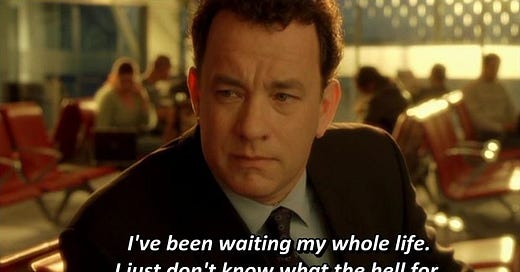



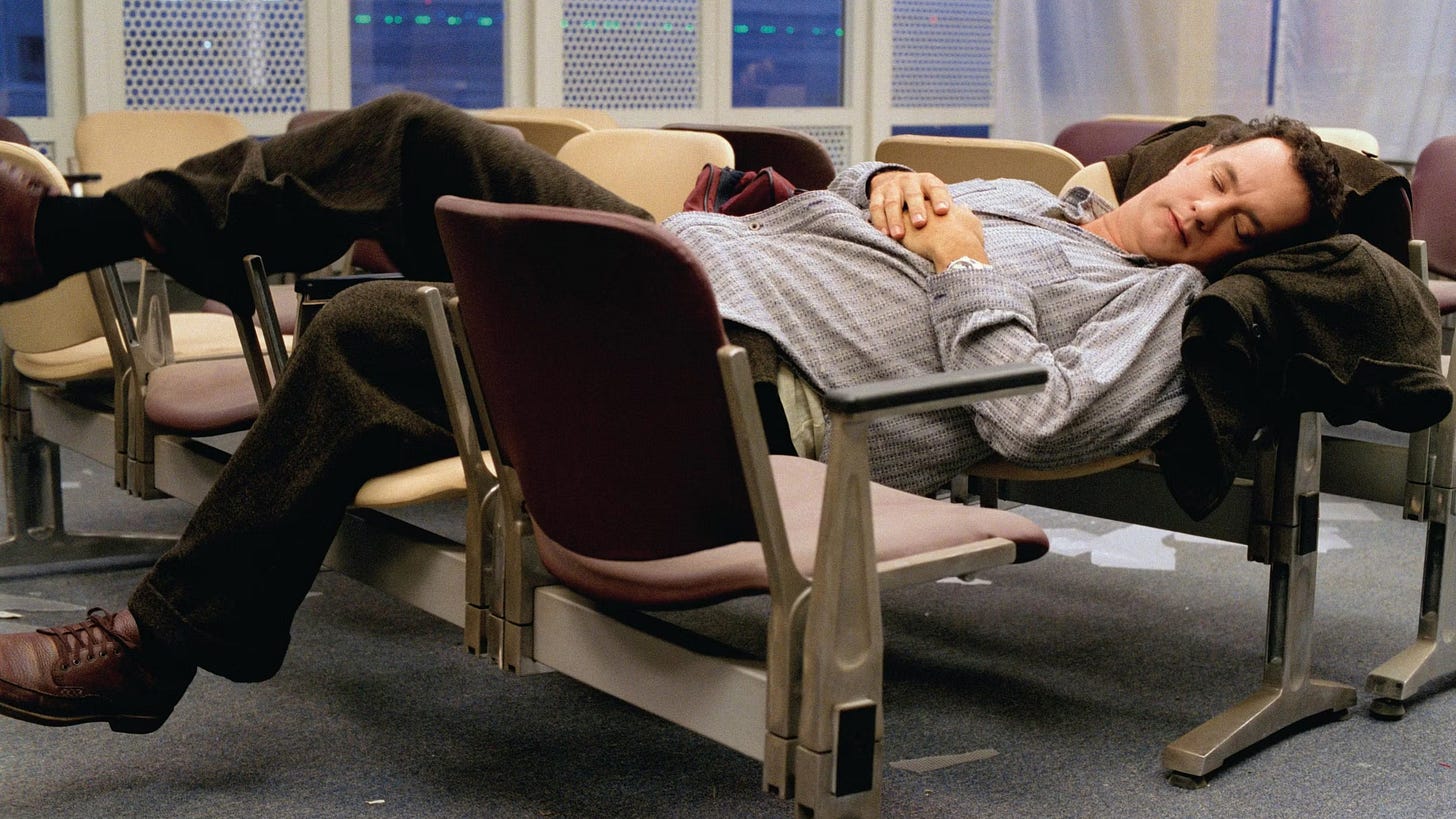
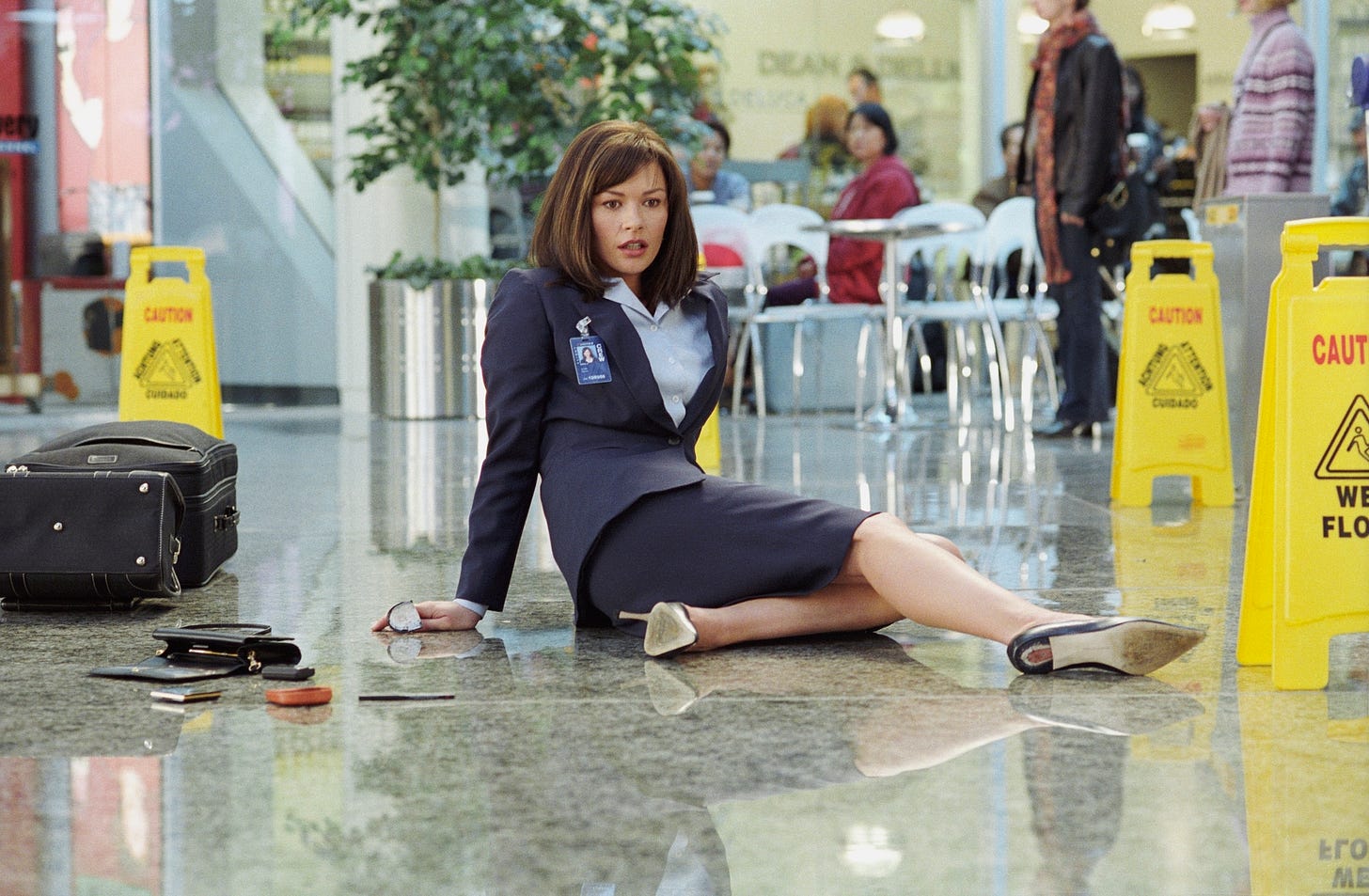
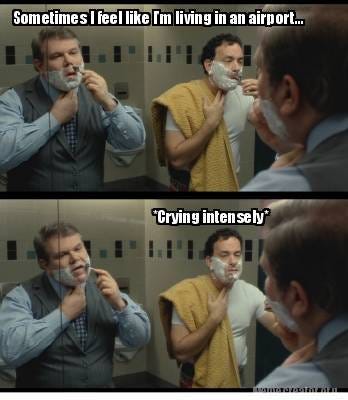
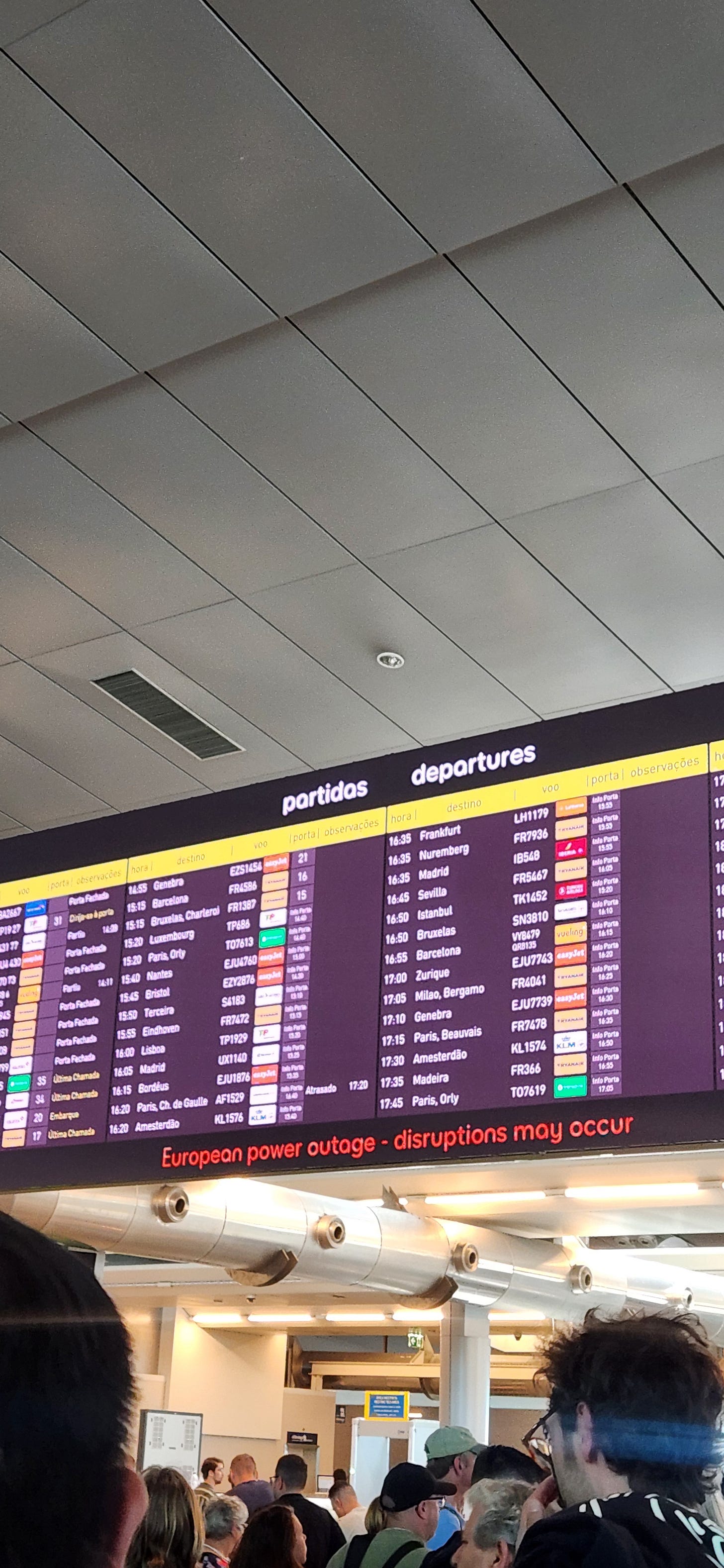
The total costs of the power outage for Spain was given as 400 million, that is 0,4 billion euros and not 2,5 or 4,5 billion. The first guesses or estimations were exaggerated.
Wow you guys got soooo lucky! :-o
Honestly as someone who got their driver's license in the '90s, is very strange to think about a world where people lack the capacity to drive without navigation apps. Like, ummm, try just knowing where things are! In your own head! My personal ambition is to be like some 1960s London cab driver with The Knowledge but I realize that's a weird priority now.